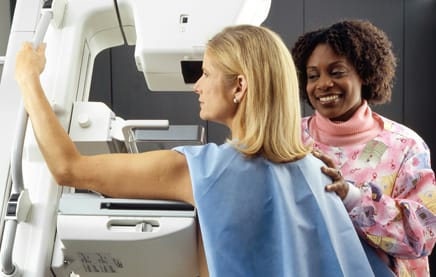Gynecology
Our caring and compassionate team is here for all your gynecological needs through every stage of life.
Navigating Contraceptive Options
When considering contraception, the range of choices can seem overwhelming. From natural family planning to prescription contraceptives and sterilization, it’s essential to select a method that aligns with your lifestyle and health needs. Factors such as sexual activity planning, comfort with contraceptive devices, and fertility monitoring play a significant role. Honest self-assessment and communication with your partner are key. Consultation with a healthcare provider can help tailor a solution that meets your needs and preferences effectively.

Today’s fertility treatments are diverse, ranging from basic interventions like fertility drugs and intrauterine insemination (IUI) to more advanced procedures such as in vitro fertilization (IVF). While IVF is well-known, many patients conceive using simpler methods like fertility drugs or IUI. These treatments can stimulate egg production and improve chances of conception. Your provider can help determine the most suitable option for your needs, whether it’s medication, IUI, or more advanced techniques like IVF, surgery, or donor-assisted conception.

Regular screenings are an important component of routine healthcare for women., Screenings serve as proactive measures for early detection and treatment. Consult with your healthcare provider to establish a personalized screening plan based on your age, medical history, and individual risk factors.
- Clinical breast exam by your provider yearly
- Mammogram is recommended annually for women aged 40 and older
- Discussion of risk factors and family history with your provider is encouraged
- Pap Smear and Human Papillomavirus (HPV) Testing
- For women ages 21 to 65
- Pap test without HPV test every 3 years from ages 21 to 30
- Pap test with HPV test every 3-5 years after age 30

Routine STI testing is critical for women’s health. It is recommended that women under age 25 should undergo annual Chlamydia screenings if they are sexually active. Beyond age 25, testing remains important for those at increased risk. Promptly reporting any unusual symptoms to your healthcare provider is crucial. Additionally, the HPV vaccine plays a key role in preventing genital warts and HPV-related cancers. Administered in three shots, it is recommended for females aged 11 to 26, with the option to start at age 9. Consult your healthcare provider to tailor a plan based on your health needs and risks.

Routine gynecological care is crucial for women’s health, encompassing pelvic exams, pap smears, breast exams, and family planning counseling. These screenings enable early detection of health issues and empower informed reproductive decisions. Pelvic exams and pap smears identify abnormalities, while breast exams detect breast issues early. Family planning counseling offers support for informed choices. Engaging in routine care promotes reproductive health and overall wellness. Consultation with a healthcare provider ensures personalized guidance aligned with individual needs.

Menopause occurs after 12 months without a menstrual period. The time leading up to menopause is called perimenopause, and typically starts in the mid-40s and lasts until menstruation stops. Hormonal shifts during this time might bring changes like irregular periods and hot flashes. Comprehensive care aligned with your health needs and goals is essential at this time. While many women navigate these changes with lifestyle changes, hormone therapy can play a part in relieving symptoms. Postmenopausal women face risks like osteoporosis and heart disease, necessitating regular screenings and interventions. Tailored discussions with healthcare providers help navigate treatment decisions.

Gynecological Conditions & Treatments
Conditions
Abnormal uterine bleeding
Endometriosis
Fibroids
Infertility
Menstrual problems
Ovarian cysts
Pelvic pain
Pelvic relaxation and prolapse
Polycystic ovarian syndrome (PCOS)
Urinary incontinence
Vaginal and vulvar diseases and disorders
Treatments
Annual exams, including Pap smears for cervical cancer screening
Pregnancy testing and counseling
Testing for sexually transmitted infections (STIs)
Contraception, including implantable contraception and intrauterine device (IUD) insertion and removal
Menopausal care
Breast exams and treatment or referral for breast disorders
Gynecological Procedures
Office Procedures
Colposcopy: An exam of cervical, vaginal, or vulvar tissue which may include biopsies.
Cryosurgery: Using local application of intense cold to destroy abnormal tissues.
Endometrial biopsy
Loop electrosurgical excision procedure (LEEP) for abnormal cervical cell growth
Pessary fittings for pelvic organ prolapse
Gynecologic Surgery
-Dilation and curettage to remove tissue form the inner lining of the uterus
-Endometrial ablation for heavy menstrual bleeding
-Hysterectomy (laparoscopic, robotically assisted, abdominal and vaginal)
-Hysteroscopy to examine the inside of the uterus
-Minimally invasive surgery for urinary incontinence
-Oophorectomy: Removal of the ovaries
-Ovarian cyst removal
-Pelvic organ prolapse surgery
-Tubal sterilization/fallopian tube removal
Obstetrics, Midwifery, and Childbirth
At Berkshire Health Systems, we offer comprehensive and personalized care for pregnancy and childbirth.
Your Care Team
Our team works collaboratively to provide individualized care to meet patients’ unique needs and the highest quality of care across our system of care. We support individuals and their families regardless of family structure, gender, or sexual identity.
Locations




















